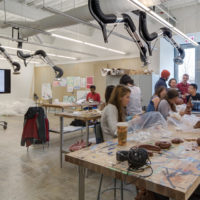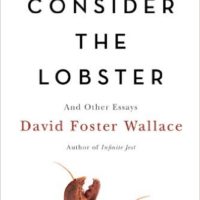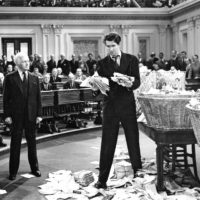Followers of this blog are familiar with my thoughts on 'economic impact' studies. But I think I have forgotten to mention yet another way in which these studies are not only useless, but positively harmful. (This was suggested by an exchange with Ian David Moss in my previous post's discussion thread). A consensus has been emerging that there has been a significant degree of overbuilding of large scale cultural facilities, where by 'overbuilding' we mean construction whose costs far exceed the resulting benefits. What might have contributed … [Read more...]
What do we actually mean by intrinsic benefits?
At Stanford Social Innovation Review, Ian David Moss has a thoughtful blog post on whether there is coherence in the notion of separating intrinsic and instrumental benefits from the arts. He writes: One problem with the intrinsic vs. instrumental distinction is that it’s something of a false dichotomy: Interrogate a dedicated arts supporter about why she believes funding is important, and you’ll eventually uncover reasons that are not specific to the arts. The arts teach us how to see and understand the world? So do history books. The arts … [Read more...]
What to do about the NEA
At Bloomberg, Tyler Cowen posts some recommendations on US federal government arts policy. He has written at length about this in his book Good and Plenty; here he gives some ideas for the new administration. The thing I always enjoy about Cowen - especially in his blog - is his ability to put fresh ideas out there as sparks for discussion; this is particularly important in arts policy, which is, especially in the US, conservative and hesitant about any departures from the status quo, save for appeals for more money. He limits himself thus: I … [Read more...]
Children’s books
It's an evergreen story: great books are removed from a school's library because a few parents have complained about their being unsuitable for children. Today it's two American classics: To Kill a Mockingbird, and the Adventures of Huckleberry Finn. From Reason: Marie Rothstein-Williams, a white parent of a biracial high school student first raised objections to the books' presence in school libraries and classrooms at a school board meeting last month, saying: "I keep hearing 'This is a classic, this is a classic.' I understand this is a … [Read more...]
Breaking away
Can you remember the movie Breaking Away? From 1979, and set at that time, in my current home town of Bloomington, Indiana. Four lads just out of high school, all lacking a sense of purpose. It's a terrific movie, highly recommended. This week Alex Usher (you should follow him on Twitter @AlexUsherHESA) suggested we ought to rewatch to understand something about the recent US Presidential election, which to a large degree turned on the Midwestern states going with Trump. So this is a riff on that suggestion, which I think is excellent. In … [Read more...]
Why it’s time to completely, totally, finally give up on economic impact studies in the arts
This is my last attempt at this topic, based on some recent (friendly!) twitter conversations and questions. One. Let me start with some data. Here, from the US Bureau of Economic Analysis, are sector shares of GDP (i.e. the total value added from each sector) for recent years. If you are interested in a broad-based conception of the creative industries, I would look to line 49, with the Information sector (publishing; motion picture and sound recording; broadcast and telecommunications; and data processing and internet publishing) at 4.7% … [Read more...]
Viewpoint diversity
In a guest blog at Scientific American, social psychologist Clay Routledge asks whether American (and presumably this applies to other countries) universities allot an excessive amount of attention to racial, gender, and cultural diversity, but insufficient attention to viewpoint diversity. He notes that his own field of study is particularly distorted by the prevalence of liberals over conservatives in most university departments: Considering how harmful prejudice can be, most people would agree that it is a worthy topic of research. The … [Read more...]
On diversifying audiences
This week The New Yorker had some shocking news: Andy Borowitz is only their second least funny humorist. In his "Shouts and Murmurs" piece "The Pences Visit Manhattan", Douglas McGrath takes the blue ribbon. He begins: Governor Mike Pence was having a romantic dinner with the love of his life, Mrs. Mike Pence, at the Red Lobster in Times Square. The Governor knew that as Vice-President he would have to attend foreign banquets, so he and Mrs. Pence were trying to broaden their palates. Luckily, they had already found a couple of dishes at the … [Read more...]
What arts legislation do we want then? A call for suggestions
A few days ago blog neighbour Doug McLennan lamented that Congress seems to have no interest in arts-related legislation, with no bills coming to floor on which we could even guess at how elected officials actually weigh the arts as a matter of national importance. I responded that we should be careful what we wish for, that any legislation dealing with cultural sector would likely be a source of conflict, that would not necessarily result in a positive result for the arts (where by "the arts" I refer to those who are the audience and … [Read more...]
What should Congress do about the arts?
Blog neighbour Doug McLennan reviews the recent Congressional Arts Report Card produced by the Americans for the Arts Action Fund PAC. He notes that there isn't really a lot of material on which to base a report card - indeed, there were no recorded floor votes that were solely concerned with the arts. And so in reckoning how to distribute their modest funds to assist pro-arts candidates, they looked to past votes, and to whether the member of Congress had taken part in any activities that showed at least an interest in the arts. Putting aside … [Read more...]










